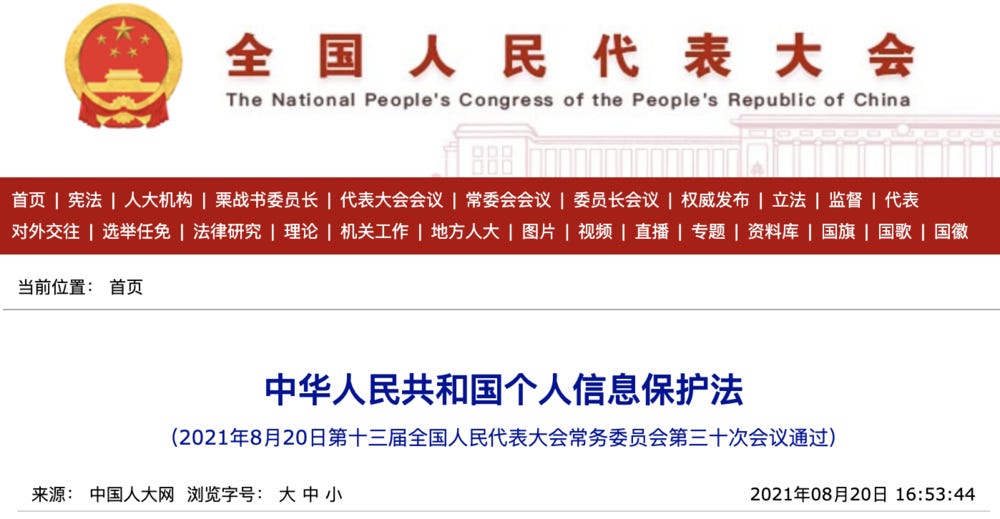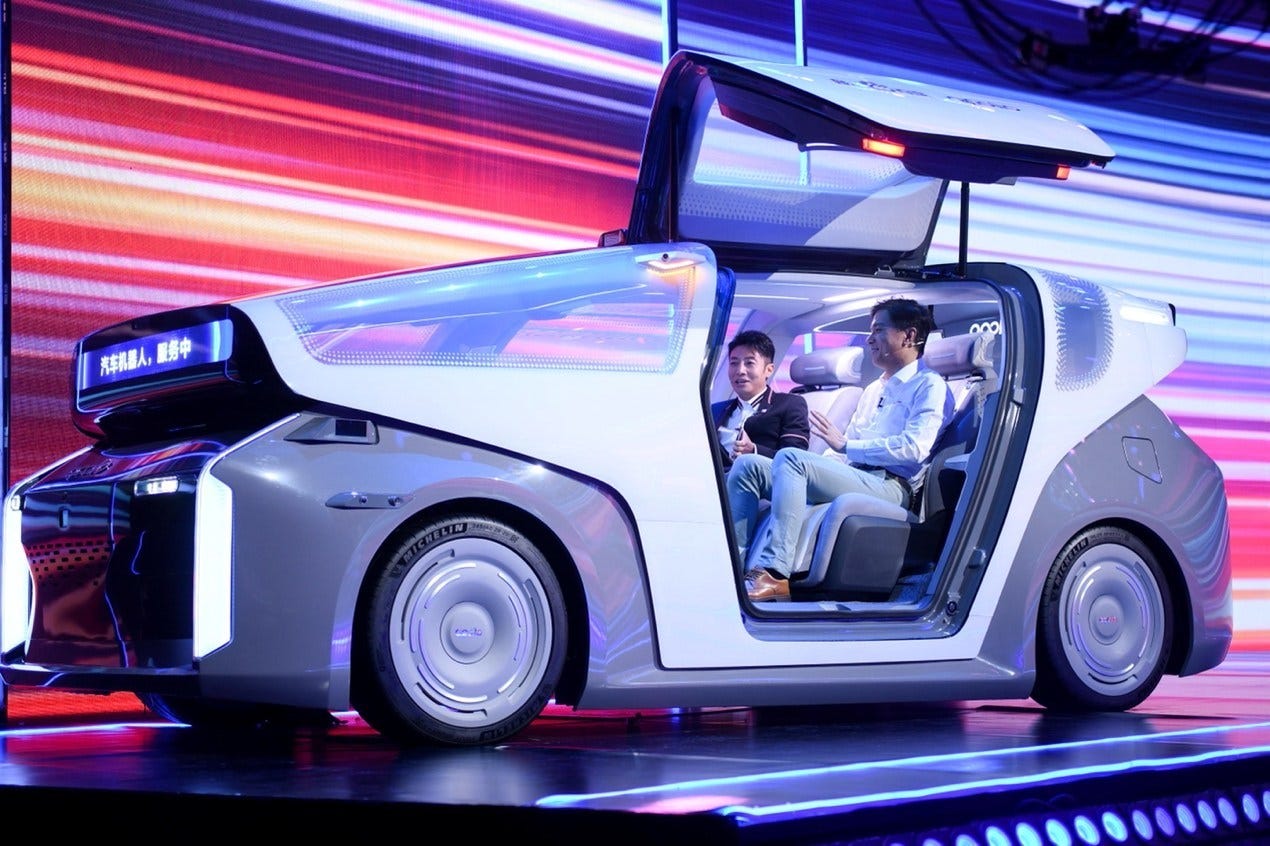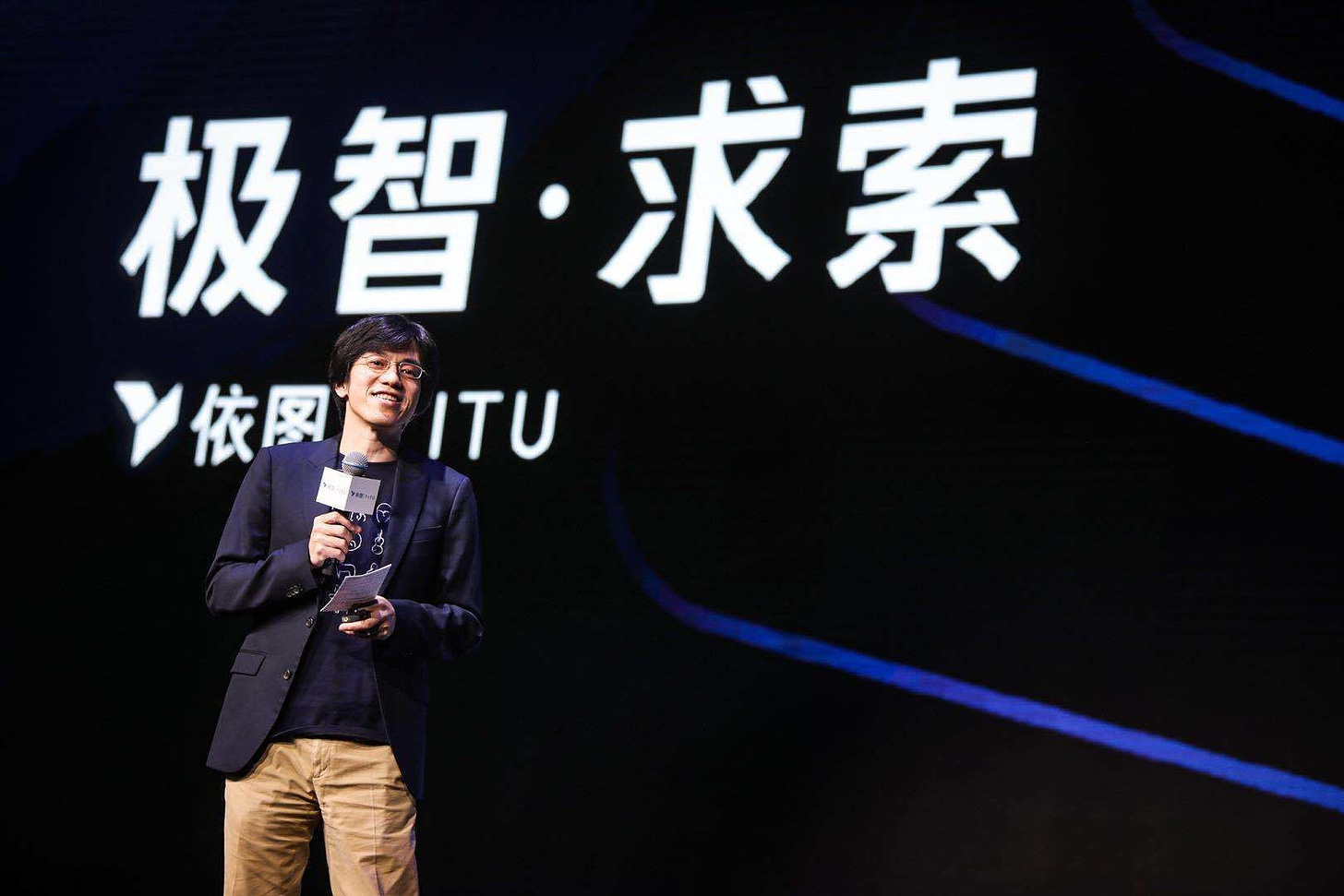China's 'GDPR' Hurt AI Firms; Baidu Unveils Concept Robocar, 2ng-Gen AI Chip; Yitu Considers HK IPO
China’s AI news in the week of August 22, 2021
China passes data privacy law to regulate data abuse
China’s GDPR: China's National People's Congress on Friday voted to adopt a new law on personal information protection. Much like GDPR, upon implementation on Nov. 1, people are endowed with rights to reject any forms of targeted marketing and big data-based price discrimination. Data operators must obtain individual consent to collect and analyze sensitive personal information such as biometrics, medical and health, financial accounts, and whereabouts.
What’s the consequence: For example, the new law stipulates any cross-border data services needs to undergo a strict security assessment. Also, any collection and processing of personal information must stay within the country.
The new regulation will also be applied to automobiles, said the Cyberspace Administration of China (CAC) on Friday. Data operators should protect the privacy of car owners and users without abusing their data privacy.
Users will be beneficiaries of the new law when it comes to legal disputes. Data operators (or defendants) must justify their alleged wrongdoing or will be criminalized,
Baidu chief envisions a L5 robocar concept, 2ng-gen AI chip enters mass production
What’s new: While Level 5 autonomous vehicles - the holy grail of future mobility that will be able to go anywhere without human attention - are still far-fetched, the CEO of Chinese tech giant Baidu couldn’t wait to unveil his ideal concept car, or as he called “Robocar”.
At Baidu’s annual technology festival Baidu World, Co-founder Robin Li brought a funky-looking concept car (or pod) to the stage - featuring gull-wing doors and a transparent glass roof outside, and zero-gravity seats, a large curved intelligent display, and control pad, without the steering wheel and pedals inside. The appearance is akin to the combination of Cruise Origin and Volvo 360C. Mr. Li likens the robocar as “both an intelligent assistant and loyal companion”, with self-learning capabilities.
Unfortunately, the company didn’t disclose additional information about the car in terms of its sensor setup or usage. The robocar concept is more like an embodiment of Baidu’s ideal mobility, in passenger vehicles or robotaxi services. The company is operating the biggest robotaxi fleet in China while aiming to release its first-ever passenger-facing vehicle model next year.
AI chip: Along with the debut of robocar, Baidu also announced the mass production of its long-awaited 2nd-generation AI chip Kunlun II, the 7nm AI SoC equipped with Baidu's own second-generation XPU architecture offering 2-3 times better performance than the previous generation. According to its Chinese release, Kunlun II features a performance of 256 TeraOPS (INT8), 128 TeraFLOPS(FP16) with a peak power consumption of 120W. The new chip has switched its memory from HBM to GDDR6, said a person familiar with the specs. The company didn’t disclose the fab, could still be Samsung.
What’s noteworthy is the chip can be applied in intelligent transportation and autonomous driving, meaning the new Kunlun II could be built in Baidu’s future robotaxis and passenger vehicles to handle AI-specific tasks like object detection. Current Baidu taps Texas Instruments to supply processors for its in-vehicle computers called ACU, which empowers its automated valet parking and ADAS.
AI unicorn Yitu considers IPO in Hong Kong
What’s new: Chinese AI company Yitu is said to consider going public in Hong Kong at a valuation of $4 billion after its Shanghai IPO plan sank, Bloomberg reported.
Yitu’s debacle in Shanghai: Last November, Shanghai’s Nasdaq-like STAR market accepted Yitu’s IPO application seeking to raise RMB7.5 billion yuan. However, the company suspended its IPO process in March and withdraw its application in late June.
Significant net losses and a tightened regulatory environment are believed to scuttle Yitu’s IPO ambition. Yitu reported a net loss of RMB7.2 billion yuan from 2019 to 2020H1. In the first half of 2020, Yitu bagged revenue of RMB381 million yuan and a net loss of 1.303 billion yuan.
Following its failed IPO plan, Yitu has reportedly laid off a significant portion of its staff to save money and sold its money-losing healthcare business, Yitu Healthcare, to rival Deepwise, an AI-based clinical imaging services provider. CEO of Yitu Healthcare has departed.
Yitu was not the only AI company that turned its eye on the Hong Kong market. Last week, we reported FourthParadigm Technology, or 4Paradigm, has submitted its IPO filing to the Hong Kong stock exchange. Alibaba-backed Megvii was close to going public in Hong Kong in 2019 but faced pushback after the company was added to the U.S. entity list over the alleged facial recognition tech controversy. SenseTime is on track to file for a $2-billion IPO in Hong Kong.
Investment News:
Neolix.ai, a Beijing-based autonomous delivery company, announced it has raised hundreds of millions of yuan in its Series B funding led by SoftBank Ventures Asia and CCIFund. Founded in 2018, Neolix.ai has delivered almost 1,000 delivery vehicles across 30 cities in nine countries.
FABU.AI, a Chinese autonomous driving startup, announced it has secured RMB 100 million yuan ($15.438 million) in its Series B+ funding led by Cowin Capital and DYEE Capital. Founded by former Didi Chuxing AI Chief Dr. He Xiaofei in 2017, FABU.AI specializes in advanced driver assistance systems and autonomous driving technology. The latest funding will be used to deploy autonomous driving tech in port transportation and city shuttles.
PMmed, an AI-powered precision medicine company, has raised almost RMB100 million yuan in its Series AI funding round led by Philips and CHERAMI. Founded in May 2017, PVmed has been developing AI-enhanced auxiliary diagnosis and treatment based on medical imaging, offering solutions for multi-disease and multi-modal diagnosis.






